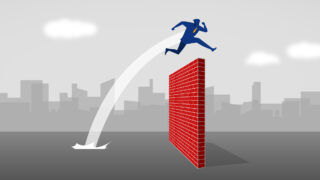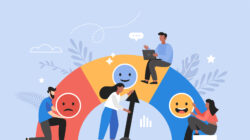Hiring the wrong person can be a costly mistake.
A bad hire can negatively impact a company’s bottom line, team culture, and productivity—and that’s beside the hefty price tag of wasted recruitment, training, and (possible) termination expenses.
In the United States, the average financial cost of a bad hire is one-third of that same individual’s first annual salary. Studies show that 37% of businesses that reported hiring the wrong talent found that employee morale suffered, while 39% saw a decrease in productivity.
Screening potential hires for essential soft skills, like critical thinking, can help you separate the wheat from the chaff and determine the right candidate for the role. Academic research shows that positive character traits like autonomy, empathy, integrity, and perseverance can result from adhering to the intellectual standards of critical thinking.
Critical thinkers tend to approach problem solving efficiently and objectively, reducing costly mistakes and optimizing resources in the workplace.
Once a philosophical exercise limited to the academic realm, critical thinking is one of the most desirable job skills for the future of work. These critical thinking interview questions will help you identify candidates who think critically and, in turn, future-proof your talent pool.
“Can you describe a problem you had at work that you were able to identify and resolve?”
A skilled critical thinker can define a problem, clarify what information is needed to understand its root cause, and execute a plan to address the problem. They’ll also evaluate the outcomes of those actions for further improvement down the line.
You can use these follow-up questions to further evaluate your candidate’s problem-solving skills:
- What steps did you take to solve it?
- What was the result?
- Do you think your solution addressed the problem effectively?
- Would you have done anything differently in retrospect?
The ability of your candidate to thoughtfully analyze their own decisions demonstrates an awareness of their own thought process—which in turn demonstrates their critical thinking capabilities.
Next Article
5 of the Best Books on Critical Thinking and Problem-Solving
The Logic Tree: The Ultimate Critical Thinking Framework
“How would you react in the following work situations? You may use your own experiences to describe your approach.”
Pass a few of these hypothetical scenarios by your candidate to get an idea of how they make decisions under pressure:
- An unexpected situation causes a sudden change in plans. What do you do?
- You’re given incomplete information and resources to quickly design and implement a project. What’s your first step?
- You’re asked to make an important decision on the spot with limited outside information. How do you respond?
Your candidate’s ability to maintain logic and reason under pressure will act as a vital clue to their critical thinking abilities. Demonstrating sound reasoning skills will (hopefully) lead to workplace decisions that are efficient and informed.
Your business will be prone to mistakes and lost opportunities if employees can’t keep up with rapid changes in the workplace. Understanding how an interviewee can problem solve in ambiguous situations will help you gauge how well they evaluate risk and respond to uncertainty.
“Have you ever foreseen a problem at work before it happened? How did you identify the problem, and were you able to prevent it?”
Critical thinkers observe and analyze workplace issues with a clear and objective eye for detail. They connect the dots and formulate potential outcomes based on logical reasoning. This, in turn, provides a level of foresight that can help to identify potential issues and get ahead of them before they get out of hand.
“Your team disagrees on the best way to move a project forward. How do you settle the disagreement?”
Efficient communication should be a job requirement all around. It’s also a hallmark trait of critical thinkers. This question helps assess a potential hire’s ability to consider a wide range of perspectives, evaluate options, and prioritize different ideas by relative importance to the task at hand.
This critical thinking interview question will also provide a glimpse of a candidate’s interpersonal skills. Their ability to listen attentively and show a sense of fair-mindedness and respect will identify them as a potential strength (or weak link) at your company.
Next Article
The Importance of Critical Thinking and Problem-Solving in Startup Culture
How to Identify and Remove Barriers to Critical Thinking
“Imagine you’re a manager with a tried-and-true methodology. A team member proposes a new idea that may improve returns. How do you respond?”
Humility is a key characteristic of critical thinkers.
The ability to accept new, logical information and explore reasonable possibilities shows an eagerness to improve. Your interviewee should be open to reassessing their thoughts and opinions when presented with new information—and be open to recalibrating plans accordingly.
This question will also help you gauge your potential candidate’s performance as a mentor down the line. Your entire organization will benefit from a team of employees who are willing to learn from each other regardless of where they stand on the corporate ladder.
Be a critical interviewer.
It’s important for recruiters to use their own critical thinking skills to screen candidates logically and objectively. Applying intellectual standards such as clarity, depth, logic, and precision when hiring helps eliminate cognitive bias that could affect your final decision.
Whatever your list of interview questions, there are often no right or wrong answers. That can complicate the interview process when there are multiple candidates. But assessing critical thinking skills, rather than making an emotional or impulsive list of pros and cons, will fool-proof your decision-making process and ensure the ideal candidate gets the job.







